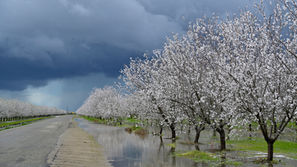Thomas Jefferson solves the mystery of covfefe
- Jun 11, 2017
- 4 min read
Until about a decade ago, the specter of Ben Franklin, one of this nation’s founding fathers, would occasionally visit me. On his last visit, as I recall, he was distracted by an incandescent bulb. He was mulling over my explanation of how Thomas Edison utilized our ability to harness electricity to produce light when he gradually faded into the void. I thought that would be the end of such ghostly visits, but I was wrong.
Last week, I was trying to decode the word “covfefe” when there was a power outage, possibly caused by the 1/160th inch of rain that we experienced. A tiny pinpoint of light mysteriously appeared in my otherwise dark office/studio/guitar room/bedroom. As the bright spot expanded, the vision of Thomas Jefferson began to come into focus. My heart seemed to be stuck in my throat as this new apparition addressed me, “Greetings, patriot.” The conversation
Although I teetered on the brink of giddiness, I quickly composed myself and responded, “Mr. Jefferson, I presume?”
“Don’t be such a prig,” he lectured. “Just call me Jeff.”
Somewhat stunned, I replied, “What did you call me?”
“Settle down, my boy.”
Boy? I suppose that I am sort of young compared to Jeff, considering that if he were still alive he‘d be 274 years old. He continued, “If you’re not familiar with the word, peruse the dictionary. Sammy would be honored.”
I figured out that “Sammy” was a reference to Samuel Johnson, who wrote “A Dictionary of the English Language” in 1755. But, I had more important topics to discuss with the author of the Declaration of Independence and one the most persuasive pundits who argued for the adoption of our Constitution.
For a short time, we exchanged certain pleasantries and I answered questions, like “Whatever became of the Louisiana Purchase?” and “Did my wine ever become a popular drink among the masses?” Then I had the opportunity to conduct my own interrogation.
“Jeff,” I said, “Our histories inform us that you were instrumental in getting the colonies to ratify the Constitution and form into the United States of America. Is that correct?”
“Well,” he replied, “As a successful Virginia farmer and vintner, with a degree from William and Mary College, I suppose that my influence was substantial.”
“So,” I tried to keep the hostility out of my voice, “Why did you cut the ‘demos’ out of ‘democracy?’” “Demos?” he queried, his eyes squinting and his forehead furrowing.
“Surely you remember the term from your studies in Greek under the reverend William Douglas,” I pressed.
“Ah, Greek for ‘people.’” He paused, momentarily lost in thought. Then he said, “What do you mean? How can you say that I cut the people out of our system of governance?”
“One word,” I exclaimed, almost jumping out of my heavily-padded desk chair, “electors.” The reprimand
Over the next several minutes, I explained to Mr. Jefferson that the nation had grown to more than 300 million people, the vast majority of whom could read and write, and all of whom had access to information via media — like newspapers, mass-market magazines, radio, and television — most of which did not exist during his lifetime. Yet, our president is selected by the vote of a few hundred electors who are local politicians or political appointees.
“You know,” he explained in response to my censure, “I only wanted what I thought was best for our nascent country, a nation of largely uneducated folks. In my ‘Notes on the State of Virginia,’ I pointed out that America should be a virtuous agricultural republic, based on the values of liberty, honesty, and simplicity. I didn’t want to see our system ruined by the possible election of a maverick who could pull the wool over the eyes of a naïve public and possibly put us in jeopardy.”
“You mean you feared the possibility of putting a loose cannon in the White House?” I asked. “Loose cannon? What do you mean by that?”
“It’s an expression we use to indicate a person who is unpredictable, impulsive, and consequently dangerous. Kind of like Aaron Burr.”
“Aar?” He was quite taken aback. “You mean to tell me that history has judged the good Mr. Burr to be a maverick?”
“Well,” I told him, “He did kill Alexander Hamilton in a duel.”
“Hmmmm,” he mused. “I suppose that both Al and Aar were a bit impulsive. Do you have that problem today?”
“That’s hard to say,” I replied. “According to his press secretary, the current occupant of the White House is a 360-degree, swivel-mounted artillery unit on an ever-shifting base, not a loose cannon. But, let’s get back to this business of voting.” The vagaries
“My dear boy,” Jefferson said, “You are trying to lure me into a debate concerning the Electoral College. But, surely you must realize that I have been both a victim and a beneficiary of its vagaries.”
“How so, Jeff?” I asked.
“Well, in 1796, when Washington declined my petition for him to run for a third term, I ran for president against John Adams. I won the popular vote in 8 of the states, but Adams took the office by a vote of 71-68 in the Electoral College.”
“What did you do?”
“There was little I could do. After all, the Constitution was the law of the land. But, when the document was first ratified, I did recommend that it be revisited and revised from time to time. Meanwhile, I went back to managing my plantations and producing my wines at Monticello.”
“I understand,” I told him. “But you became president four years later. Why didn’t you try to change the system and institute a popular vote then?”
“Dear boy, dear boy. Don’t you see? It was my turn to be the victor in the Electoral College.”
“How so?”
“For the years of Adams’ presidency, I watched him pursue a quasi-war and raise taxes. So, Aar and I challenged him in 1800. Clearly, Adams had the upper hand, and I carried the same states that voted for me in 1796. However, the population had shifted somewhat, and the election ended in a tie in the Electoral College.”
“Wow,” I exclaimed. “What happened next?”
“The whole election was thrown into the House of Representatives and, after 36 ballots, the Jefferson-Burr ticket was proclaimed the winner. Aar and I celebrated with a bottle of Covfefe from my winery.”
Mystery solved. Jefferson disappeared.





















Comments